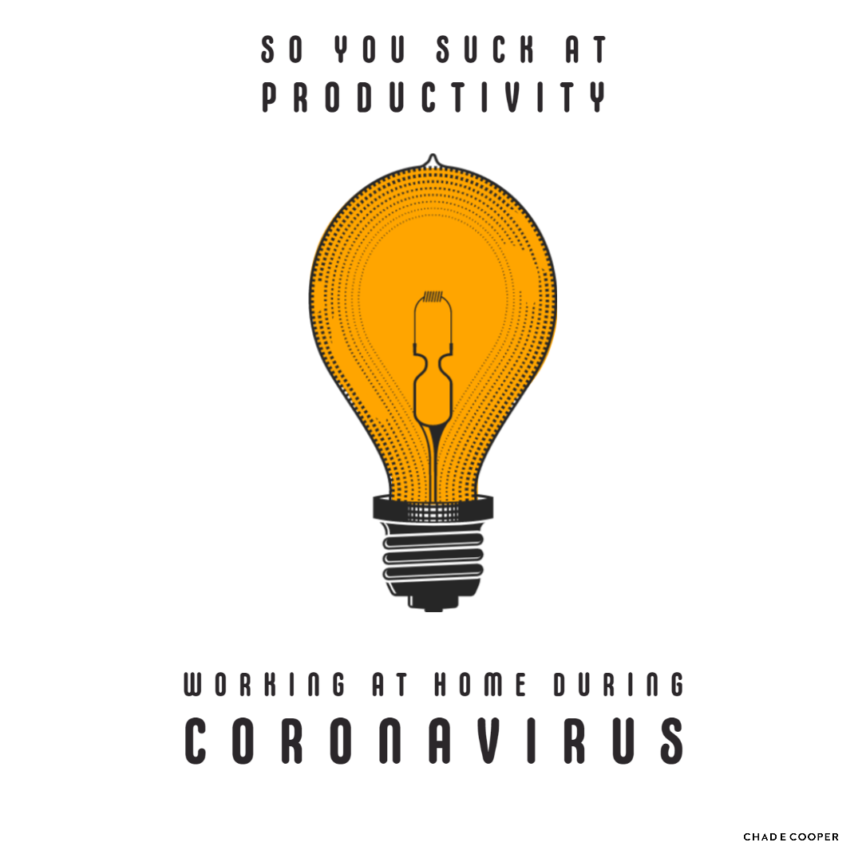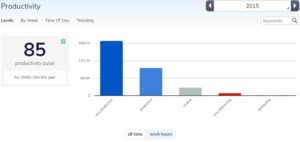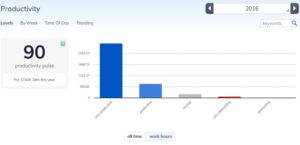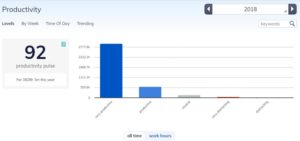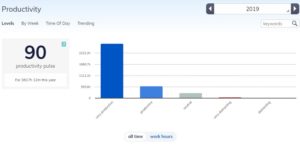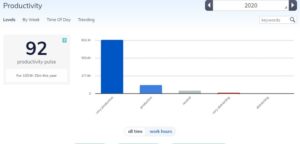You’re an achiever. A doer. You have big plans for your life and want to do big things, to excel in every area…wouldn’t it be nice to do all this while feeling happy and content rather than burnt-out and unfulfilled trying to live up to everyone’s expectations and demands?
Yet there’s this never-ending to do list that seems to constantly grow no matter how many things you check off. Always more and more to do, and not enough time to do it all. You’re tired of feeling burnt-out, unfulfilled, never good enough, guilty, and exhausted all the time. Yet in reality, time is the only equalizing factor across the board. Everyone has 168 hours in a week, so it’s not really about having enough time. When it comes to productivity, it’s all about how you leverage the time you have – not that you need more of it, or more to do.
I’m sure you know how to be productive. There are countless tools and systems you can use. I don’t believe that you’re lazy and that you simply don’t want to be more productive. You can be disciplined, you can get stuff done, you can achieve a lot – that’s how you’ve become so successful. So perhaps it’s not about “doing more;” perhaps we have been defining “productivity” wrong all this time.
Being highly productive is not only achievable, it’s also measurable. 34% of U.S. employees are engaged at the job (enthusiastic and committed to their work) while 13% are actively disengaged (have miserable work experiences). (Source: Gallup). For the last six years, I have averaged over 89.83% productivity on a yearly basis. How do I know this? Because I track my time consistently using RescueTime – a program I highly recommend. Tracking my time has taught me a valuable lesson, and that is that productivity isn’t necessarily about doing tasks or giving the same amount of time to every area of your life. Being productive is about intentionally allocating all of your 168 hours per week to the specific areas that are important and meaningful to you. Let me explain.
Rather than defining productivity through activity, or a series of tasks crossed off on a to-do list, I define productivity by outcomes achieved. In order to “be more productive,” you first have to:
- Have clarity on the outcome you want to achieve
- Connect this outcome to your life purpose so it’s relatable
- Describe this outcome with language that makes you feel valued and fills you up
- Schedule this outcome (with juicy and delicious language) in your calendar for when you will complete it
With these four steps, you can move beyond the never-ending task list of “do do do” and getting caught up in a flurry of activity to simply check the boxes, to having intentional precision in every area of your life based on the outcomes YOU want to achieve. Having these outcomes relate back to your life purpose also ensures everything you do in life supports your mission and the legacy you want to leave.
Redefine the way you view time and leverage your 168 hours so that you are intentional and purposeful in every area of your life, week after week, by focusing on outcomes and not activity. Be intelligent and think for yourself, and take accountability when it comes to being productive. It’s critical to realize productivity is not limited to work-related activities; it is about intentionality in every area of your life. If you want to achieve lasting success, you must define what your pit stops and important areas are that make up your full 168 hours – areas in addition to work, like sleep, exercise, family time, meditation, personal growth, friend time, etc. In everything, we must step back and ask ourselves, “Is what I’m doing intentional towards achieving who I want to become in one of these areas?” Are you focusing on activity, or outcomes?
Viewing your life in this way will put you back in control of every aspect of your life, going beyond simply managing time to intentionally leveraging it with precision. Find the hours when you are most productive, know when you are at your best and deliver at your best, and structure your output around these times. Equally important is knowing when you need to take breaks and actually scheduling downtime so you can come back refreshed and bringing your best self to every interaction, with every person. My days usually begin around 4 am and there are times where I work sixty hours a week. However, I make sure I am still dedicating a significant amount of my time to being Super Dad to my son and a loving and present husband to my wife. I also spend time daily meditating, connecting with friends, exercising, and decompressing watching Netflix. All of this is productive because all of it is intentional. The number of hours I’m giving to every activity doesn’t necessarily matter so long as I am satisfied with how much time I am intentionally giving to each area. If I find myself feeling drained and burnt-out and giving only the leftovers to my family and myself, all it takes are a few adjustments to how I am allocating my time.
Leave feeling stressed from focusing on activities that never really move the needle forward in the past. Stop feeling burnt-out, run down, and guilty for not getting everything on your list done, or for failing to live up to the level of perfection always telling you that you should be doing more. Instead, move to a place of serving others and getting things done that is motivated from a place of joy and gratitude. In everything, know that you are showing up at your best and achieving outcomes that are critical to your life’s purpose and most important work because you are intentionally scheduling everything that is important to you. Every activity has the power to fill you up and lead to lasting success as you shift to achieve from a place of power and precision in every area of your life – shifting “productivity” from doing tasks to being intentional with every hour of your day, week in and week out.

